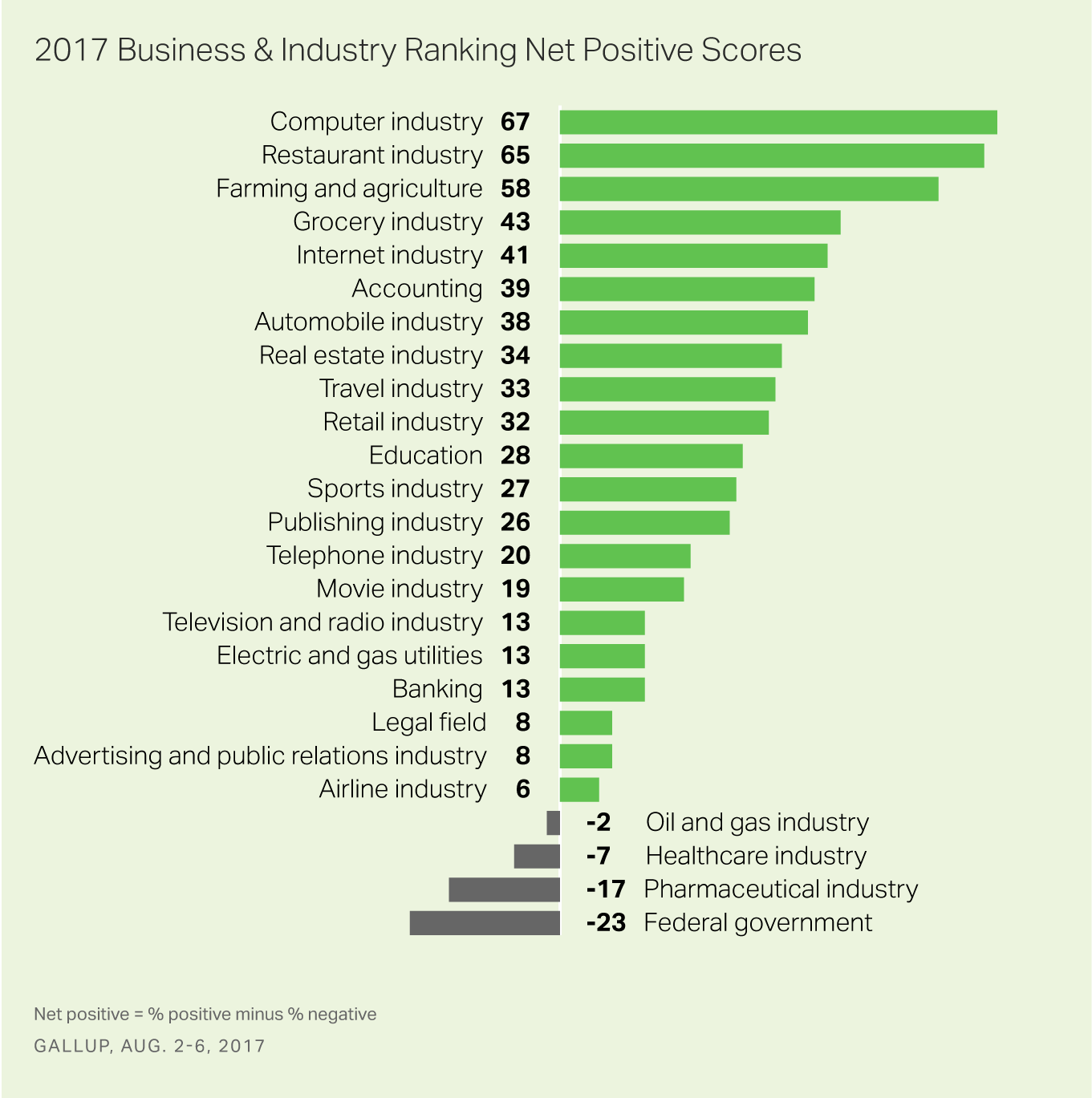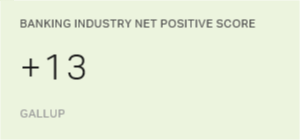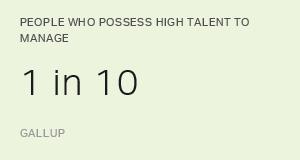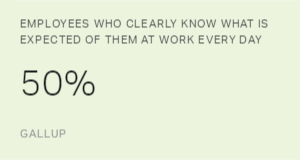Across the globe, CEOs and CHROs keep telling Gallup the same story: They have a lot of great positions sitting open and can't find anyone to hire. What's worse is that many of our clients -- often the ones who try the hardest to engage their employees -- lament that their best candidates frequently decline their offers so they can join companies in more popular industries -- the ones known to provide a variety of unique perks.
Despite gains in public perception for many industries, company leaders in some sectors are still likely to have a tough time attracting and recruiting employees.
In 2017, most major industries that Gallup tracked netted a positive image score, which means more Americans rated them positively than negatively. But some did not fare quite so well. For these industries, attracting applicants might seem like an uphill battle.
The banking sector, for instance, managed only a +13 image score. In comparison, the computer industry -- known for offering perks like free lunches and recreational activities such as pingpong -- earned a +67 net positive image score.

So does that mean banks should start offering their employees napping pods and free massages to compete with the computer industry? Does the negative perception left over from the Great Recession doom companies in the banking sector to perpetually struggle with recruiting top talent? Not necessarily.
If attracting quality candidates were a matter of pay and perks alone, more industries would probably be doing it. In some ways, attraction is the easy part. Attracting people who are likely to stick around, however, can be another story.
Yet, as counterintuitive as it might sound, research has shown that, because of the development of strong cultures, industries with positions that have a social stigma (e.g., criminal defense attorneys, bill collectors, telemarketers) might actually create a stronger sense of positive identity among their employees than industries with other types of positions can. Savvy leaders can leverage this sense of identity in their recruitment messaging strategies to drive a larger pipeline of high-quality candidates that will stay long term.
In fact, many leaders have found ways to do it. When hiring in unpopular industries, consider the following strategies:
1. Think long term. Many leaders are surprised to discover that fun workplaces are more important to baby boomers than they are to millennials. The primary attractor for millennials is actually development opportunities. More importantly, applicants who are identified as high-quality candidates are more likely than low-quality candidates to report being attracted to a position because of opportunities to learn and grow.
Take the example of one bank branch manager who changed her approach toward employee retention and recruitment. Before she started focusing on employee development, she tried to minimize development opportunities for fear that she might be training her future competition's top performers. However, she quickly discovered that many of her high potentials were leaving for other industries. So, she adjusted her approach.
She began to think of her branch as a launch pad for future career opportunities -- both inside and outside her organization. She discovered that by building her reputation as a great mentor who groomed top performers to go on to better things, she increased the flow of ambitious early career professionals into her branch -- and they ended up staying longer too.
Leaders in unpopular industries can adopt this tactic by emphasizing learning and development opportunities in their industry that carry over into others. Internships or rotational programs are great ways to deploy this tactic, but also be sure to include development-related messaging on your company career website and job advertisements for various roles. Even the most difficult aspects of a position set people up for success if you help employees think about how those challenges help them grow in the long term.
2. Celebrate challenges. High-quality candidates are more likely to report being attracted to roles that provide a challenge. Keeping that in mind is especially important for crafting recruitment messages for roles in unpopular industries.
When employers frame challenges the right way, they stop having a stigma and start becoming a mark of distinction -- an opportunity to use one's strengths. Many leaders mistakenly minimize or hide the hard parts of a job to "sell" recruits on accepting their employment offer. This approach often fails to entice candidates who are the right fit, and, at worst, it attracts the opposite type of candidate than you want for long-term success in the industry.
Being a collections agent, for instance, can be emotionally draining for someone who is emotionally sensitive. A low-quality candidate for a traditional collections role, therefore, might be someone who expresses too much sympathy for their debtors. So, in job descriptions, recruitment ads and job interviews, don't minimize the fact that to be successful in the role, one needs to be psychologically strong -- embrace it.
In Gallup's latest State of the American Workplace report, we reveal that the most important attribute that employees consider when deciding to take a job with a different organization is their ability to do what they do best. It takes a certain type of person to shine in unpopular industries, and not many are up for the task. The few who are will welcome the challenge with a sense of ease, excellence and enjoyment.
3. Communicate mission. Criminal defense attorneys do not see themselves as defending drug dealers and murderers. Instead, they frame their job as upholding their belief that every person, regardless of status, has the right to receive a fair trial. Likewise, funeral directors focus on the help they provide to grieving families rather than the tasks involved in dealing with dead bodies.
Even seemingly commonplace roles can take on a greater sense of meaning when employers connect them to a larger purpose. Researchers have documented the way that high-performing hospital orderlies often emphasize their role in caring for patients and aiding in their recovery. Often, transcribed interviews of the most tenured hospital janitorial staff sound more like what one might expect from clinicians due to the custodians' intense focus on patient care and well-being.
Not every job is explicitly altruistic, but every job has a customer who is being served, even if the customer is an internal one. Banking leaders, for instance, who seek to attract high-quality applicants can benefit from emphasizing the role that their employees play in positively affecting the financial well-being of their customers and, ultimately, the health of the economy as a whole.
Will some jobs never attract high-quality applicants? Are there some industries that nobody wants to work for? Of course not. Leaders in every industry have access to candidates who are a good fit for their roles -- and who want to work in their industry long term.
The key to finding these types of candidates is identifying the people whose dream it is to work for your company -- and in your industry -- but who just don't know it yet. Job seekers want to do what they do best, learn to do it better and connect their talents to a purpose that's fulfilling to them. Not everyone gets to work in what many people consider to be a hip or cool industry, and sometimes that's a good thing because it opens a door for some employees to work in the role that's actually right for them.
To learn more about attracting the best candidates to your organization:



